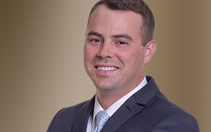Banks Must Produce Note and Mortgage in Florida Foreclosure Cases

On October 27, 2010, the Fourth District Court of Appeal ruled that banks foreclosing on homeowners must produce an original note and mortgage or other proof of ownership to prevail on summary judgment motions. See Servedio v. US Bank Nat’l Ass’n – So. 2d – (Fla. 4th DCA 2010) (available at District Court of Appeal of the State of Florida
Fourth District) (last visited Nov. 2, 2010).
A summary judgment motion has two basic functions: it serves to notify a court that there exist no “genuine issues of material fact” (meaning for the purposes of this discussion that a note and mortgage actually exist; that the bank is the lender and debtor is the borrower) and asks a court to resolve a case by applying the law to the facts of the case.
In the Servedio case the Fourth District confirmed that a bank cannot prevail on summary judgment without a note and mortgage on the record because there would still exist material issues of fact—whether the bank actually held a note and mortgage on the property at issue!
In response to the Servedio case, US Bank said it plans to resubmit documents in Florida and 22 other states by mid-November. It is no surprise that Shapiro & Fishman, LLP, one of the four Florida foreclosure firms being investigated by the Florida Attorney General for allegedly filing inaccurate and false documents, represented US Bank in the Servedio case.
For a full discussion on the above decision and its aftermath, see: Foreclosure defense: Court rules bank must prove ownership.
You should consult with an attorney if you have questions concerning a foreclosure case against you.
